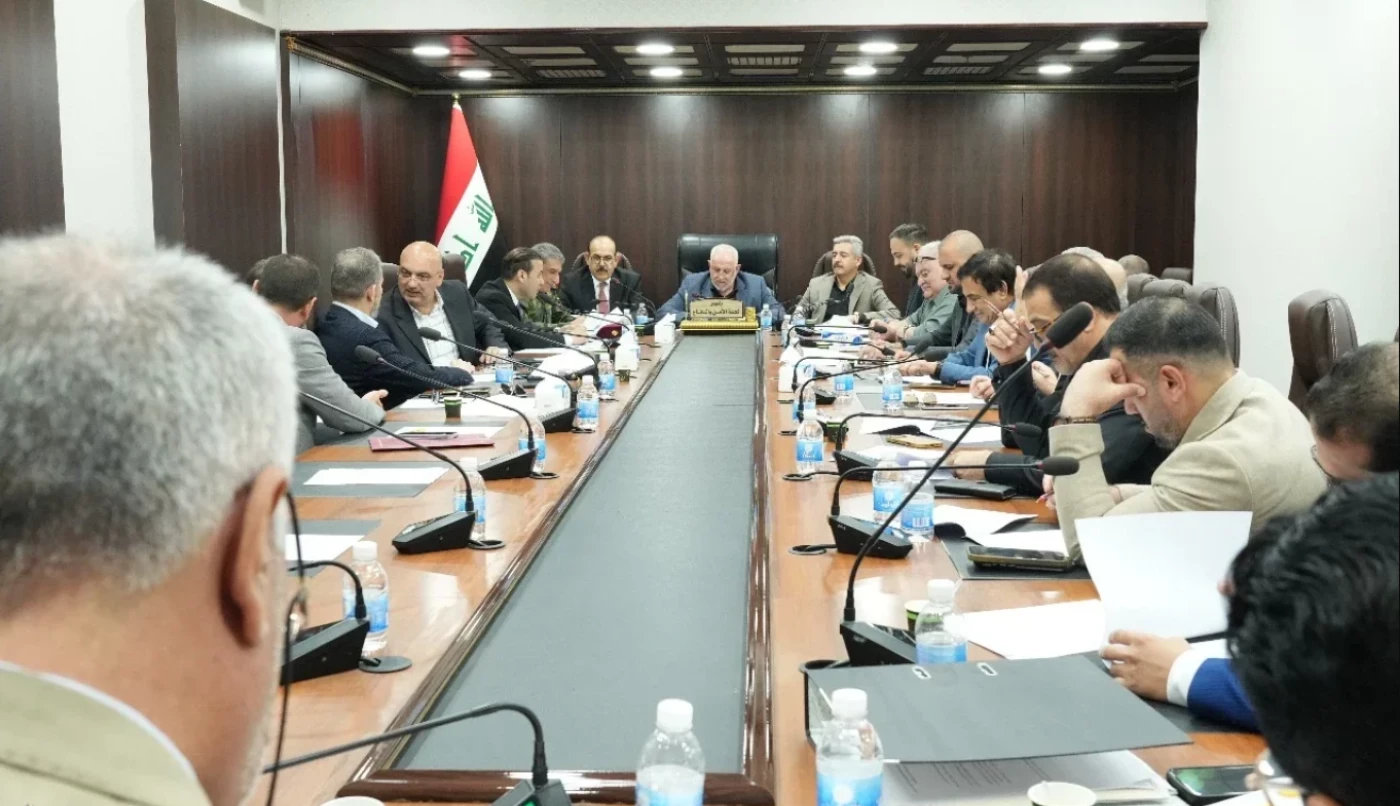ERBIL, Kurdistan Region of Iraq – The Iraqi parliament’s Security and Defense Committee on Tuesday recommended that the Popular Mobilization Forces (PMF) draft bill be submitted to the parliament’s presidency in the upcoming session for a vote, coming amid robust US pressure on the Iraqi government to kill the bill.
The committee held a meeting earlier in the day in the presence of PMF Secretary-General Tahseen Abdul Matar to review the developments relating to the bill, the Iraqi parliament’s media office said in a statement, noting that “the committee recommended submitting the draft law to the Speaker of Parliament and his two deputies, with the aim of including it on the agenda of the upcoming sessions for a vote.”
“This will contribute to completing the legal framework for the PMF's work and strengthening its role within the national security system,” the committee argued.
The bill, which has already undergone two readings, if passed by the parliament, aims to organize the Popular Mobilization Commission (PMC) similarly to other state security and military agencies, giving them retirement rights and pensions like other members of the official Iraqi security apparatus.
In a phone call earlier in July, US Secretary of State Marco Rubio alerted Iraqi Prime Minister Mohammed Shia’ al-Sudani of Washington’s “serious” concerns with attempts to pass the controversial Service and Retirement Law for the PMF, according a statement by the US State Department.
“Any such legislation would institutionalize Iranian influence and armed terrorist groups undermining Iraq’s sovereignty,” Rubio emphasized in the phone call, the statement said.
Rubio’s warning was preceded by an official letter from Washington that was delivered to Sudani earlier in the same week. The letter reportedly spelled out the reasons behind Washington’s concern while also giving the Iraqi prime minister a clear ultimatum to halt the bill's progression, a source told The New Region following the phone call.
The PMF, or Hashd al-Shaabi, was formed upon a call by Iraq’s top Shiite authority Ayatollah Ali al-Sistani soon after the Islamic State (ISIS) took over large swathes of territory in Iraq. The force has been officially incorporated into the Iraqi armed forces, enjoying similar privileges as the Iraqi army.
The group is widely regarded as having close ties with Iran, a long-standing adversary of the US in the Middle East. Groups affiliated with the PMF have time and again been accused of targeting US interests inside Iraq, especially after the US assassination of Islamic Revolutionary Guard Corps (IRGC) commander Qasem Soleimani in January 2020 in Baghdad.
Hours after the Sudani and Rubio phone call, pro-PMF players in the Iraqi political scene readily released statements of their own, urging the bill's passage to be expedited and slamming Washington's disapproval of the draft law.
The Sadiqoun parliamentary bloc, the political wing of Iran-aligned Asa'ib Ahl al-Haq, led by Qais al-Khazali, called on the Iraqi parliament's presidency to include the bill in the parliament’s agenda for “immediate voting” in an emergency meeting.
“Any delay in passing the law is a denial of the sacrifices of the mujahideen who protected Iraq from terrorism,” said the bloc, demanding that an emergency parliamentary session be held to vote on the bill “without delay.”
Hussain Mouanes, head of the Al-Huqooq parliamentary bloc that is backed by the PMF's Kataib Hezbollah, on Wednesday said that the US recommendations only apply to “Iraq’s illegitimate children. As for its free people, they have their say in the face of this diplomatic ugliness, and the appropriate response to this transgression is to proceed with the approval of the Popular Mobilization Commission Law."
In March, US President Donald Trump addressed a letter to Iranian Supreme Leader Ayatollah Ali Khamenei, pressing Tehran for talks over the nuclear issue. The letter reportedly also included a direct request to dissolve armed groups in Iraq, specifically the PMF.
Groups affiliated with the PMF have time and again been accused of targeting US interests inside Iraq, especially after the US assassination of Islamic Revolutionary Guard Corps (IRGC) commander Qasem Soleimani in January 2020 in Baghdad.



 Facebook
Facebook
 LinkedIn
LinkedIn
 Telegram
Telegram
 X
X


